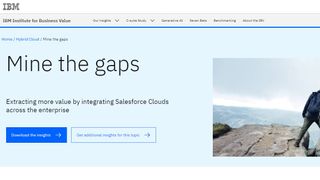Attitudes must change to encourage home working
A debate at London’s Transport Museum last night concluded that whilst the technology for home working is available, attitudes of both management and staff may need to alter for it to truly succeed.

The technology for home working is ready to roll in most cases but the attitude towards it is what has to change for it to really take off.
That was the conclusion of a debate held last night at the London Transport Museum, discussing "Connected Britain" and how far we have come in turning it from vision to reality.
With more people connected to the internet that ever, private investment into renewing our building up our infrastructure and Government plans to increase connectivity, the basics are there for growing trends of home working.
James Bellini, former Sky presenter and futurologist, said: "There has certainly been dramatic change with connectivity technology."
He added: "The degree and scale and pace of change that we will see in the next five or 10 years is comparable to what we saw 200yrs ago [with] steam ships, railways and electric telegraph... life was never the same again."
Yet personal attitudes towards staying at home and missing out on the office experience still hold many back.
"We are social animals," he said. "Our practices may change and technology may allow us to work [differently] but we will still want to be in certain places and still want to travel," said Kulveer Ranger, advisor to the Mayor of London on transport issues.
Get the ITPro. daily newsletter
Receive our latest news, industry updates, featured resources and more. Sign up today to receive our FREE report on AI cyber crime & security - newly updated for 2024.
"Why is it that billions of pounds are being invested [with] multinational companies building more and more offices. Why is there still a need to connect Canary Wharf with the rest of London? To work but also to meet each other, to mix."
It's not just down to workers' attitudes either. Management issues with trusting employees to work at home also remains a massive barrier.
"The office model is an industrial model, it is based on a factory... a typical office is really a replanting of a notion of mistrust... [bosses] don't want people to work at home as they don't trust them," Bellini added.
As more technologies are adopted and become mainstream perhaps this will change, the debate attendees suggested.
"Patterns are developing [with] about two thirds of business offering some forms of flexibility so it seems options are opening up... I know some organisations are sticking to traditional models but some people are changing that," said Robert Ainger, director of corporate marketing for Orange.
Although the debate is important, it wont be our generation making the decisions but the next, according to Bellini.
"Digital natives, [those who grow up with the technology rather than introduced to it later on] they will control our workplace. They have to make the decision whether they are going to be community citizens or virtual citizens," he said.
"Big choices but from my point of view it will be fun watching them do it," he added.
Click here for our special focus report on flexible working.
Jennifer Scott is a former freelance journalist and currently political reporter for Sky News. She has a varied writing history, having started her career at Dennis Publishing, working in various roles across its business technology titles, including ITPro. Jennifer has specialised in a number of areas over the years and has produced a wealth of content for ITPro, focusing largely on data storage, networking, cloud computing, and telecommunications.
Most recently Jennifer has turned her skills to the political sphere and broadcast journalism, where she has worked for the BBC as a political reporter, before moving to Sky News.





